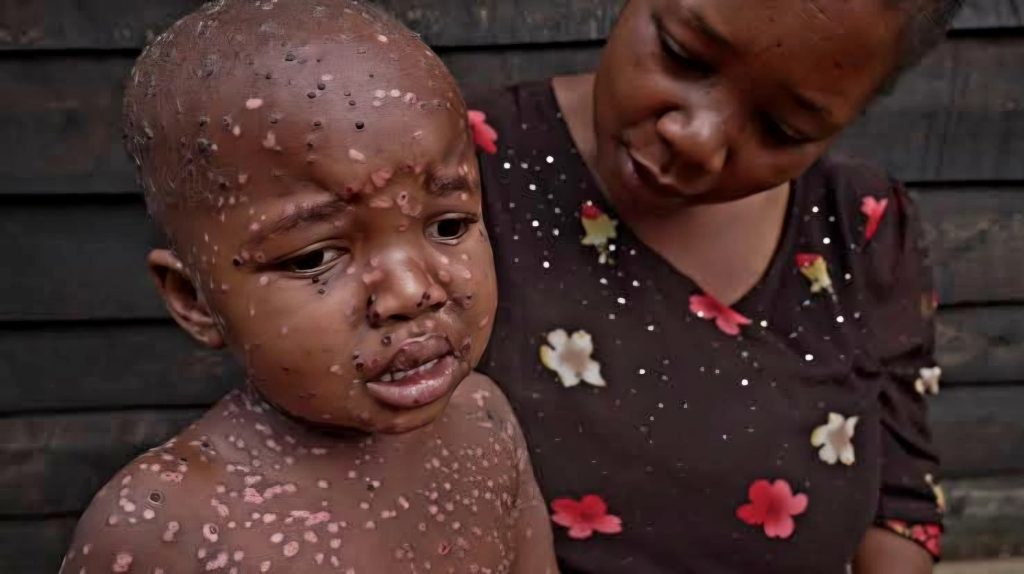Health officials in Uganda have advised against relying on information from border health workers regarding the mpox outbreak.
A recent case involved a child initially suspected to have chickenpox, but the diagnosis revealed mpox, a virus spreading rapidly from eastern DRC into Uganda and other regions. This new strain, which differs from the 2022 variant that spread mainly through sexual contact, now transmits quickly through close daily interactions, affecting both adults and an increasing number of children.
Despite conflicting reports from various sources, it is clear that children are disproportionately affected. According to the United Nations Children’s Fund, 84% of mpox-related deaths in DRC since January have been among children, from approximately 15,600 reported cases.
An aid organization has reported that 70% of over 300 suspected cases in Munigi involve children under 10 years old.
The virus has crossed into Uganda, where officials claim the outbreak is under control. However, local health workers describe the situation as critical, citing severe cases with extensive blisters and high fevers.
The Ministry of Health in Uganda has urged that reports from the border be disregarded, stating that only four mpox cases have been officially confirmed.
The Democratic Republic of Congo (DRC) is grappling with a severe mpox outbreak, affecting over 7 million displaced people living in camps like Munigi. These camps, set up for those fleeing violence from armed groups and the national military, suffer from severe overcrowding and poor sanitation. Raw sewage runs through the camp, and access to clean water is limited, making it difficult to maintain hygiene and creating ideal conditions for the spread of mpox and other infectious diseases.
Globally, 35 countries have reported mpox cases in the past month, but DRC remains the most affected, accounting for approximately 90% of Africa’s cases this year. Health facilities in Goma are overwhelmed, with patient numbers far exceeding their capacity.
Children are disproportionately impacted by this outbreak, with recent data showing that 84% of mpox-related deaths in DRC this year have been among children, out of around 15,600 reported cases. In Munigi, nearly 70% of the more than 300 suspected cases involve children under 10.
The virus has also spread into Uganda, where officials claim the outbreak is under control. However, local health workers report a dire situation, with evidence suggesting a more widespread outbreak than the official numbers indicate.
The current mpox outbreak involves the more severe Clade I strain, which spreads rapidly through close contact and has a higher fatality rate compared to the milder Clade II. This follows a global outbreak of Clade II in 2022.
Efforts to manage the outbreak are hindered by logistical challenges, including delays in vaccine distribution. Despite the World Health Organization declaring the outbreak a public health emergency, vaccines have not yet reached DRC, further complicating the response.
With ongoing conflict and displacement, affected communities continue to face significant challenges, struggling to cope with the worsening health crisis amid limited resources and healthcare options.

